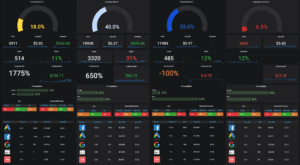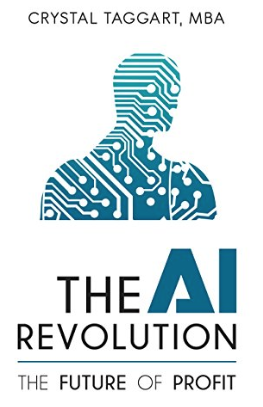How do online advertisers ‘earn’ 99% of their revenue from a 99% failure rate?
I have a joke that I tell at conferences when I present. “Marketing is the only profession in the world where you can have a 99% failure rate and be considered successful.”
As a technologist and entrepreneur, the state of the current online marketing duopoly truly frustrates me. Is there any other industry where you have perfect information to gouge your customers and not be accountable to deliver ANY results?
I have personally spent thousands of dollars on different campaigns for different startups that I’ve run that have never gotten a single lead. Whose fault is it, mine or the duopoly?
Perfect Information
Think about it. When you create an online ad, you put in your daily budget, you put in your price per click maximum. From that information, those companies can run optimization algorithms across all of the companies competing for those keywords (aka your competitors) to maximize their profit. It’s not a surprise that the most powerful companies in the world earn 99% of their income from a 1% success. It’s a zero sum game where you and your competitors try to buy your way to the top, your customers pay more for your services to cover the cost per acquisition, and truly, the big winners here are the online advertising platforms. They make money regardless of whether or not your lead converts.
It gets even better when you plug your metrics back into these platforms for campaign reporting. Now they know how much you will pay per lead, how much you will spend per day on leads, and THEN they know exactly how much revenue YOU get per lead? If you knew that information from your customers do you think that you might get more money on the table? Then, tack on the EVEN MORE INCREDIBLE is the fact that you can plug in your FaceBook Ad metrics into your Google Analytics platform. So now Google knows not only what you spend/earn on their platform, but also what you spend/earn with their competitors. The fact that people add this data to your (aka THEIR) ‘free’ analytics system is mind-blowing.
Increasing Complexity
Don’t get me wrong, I think that the platforms that Google and FaceBook have created are truly AMAZING and have revolutionized our world. Displaying ads that are targeted for you, based on what you search for, based on what your interests are wasn’t a reality 20 years ago and it’s constantly improving. But, those improvements also create massive amounts of complexity.
I’m an expert in technology. I’ve been designing, implementing, configuring custom and packaged software for over 20 years. I’m the person behind the scenes figuring out what information to add to your systems to get you the results that you want.
One of my first experiences with my ad campaigns on Facebook for a free online webinar I was launching provided a ton of click-throughs running out my budget without a single signup. Is that Facebook’s fault or mine? Maybe my marketing sucked, maybe my call to action sucked, or maybe I was gamified that I was sold a product that didn’t deliver results because ‘everyone needs to market on [insert platform of choice here]. In another experience I targeted a Google search for a very targeted keyword entry for a very targeted geographic location. Another thousand dollars was wasted on people who were searching for a very different keyword that was in a separate category lumped into my ‘keyword group’ who were totally not my customers that I was targeting.
If I, an expert in technology (who analyzes data for a living), can’t set up a simple campaign targeted for a simple phrase targeted in a single geographic area, what hope does a small business owner have? Not only do you need to learn how to become an expert at ads, but also learn this in addition to the MANY other things a business owner has to learn with limited resources often supported by only blood sweat and tears.
The things that I have learned by running my own failed campaigns is that there is truly an art and a science here and these companies are the most powerful companies in the world by profiting from inefficiencies in the market by the trial and error that every marketer (both new and expert) experiences daily.
They make 99% of their profits from the complexity of their solutions and from our own expectations that ‘eyeball marketing’ is required in order to get leads.
In a world where the average person can spend a thousand dollars and NOT get a single lead, there's a problem here. Systems are being designed only for the experts who can hack the rules to get results. The rest of us that don't have time to become experts on SEO and Ad Campaigns get screwed in the process and pay the salaries of the duopoly executives who ride on the back of our failures and lessons learned.
Leveling the Playing Field
We created Atlas AI to help marketers get deep insights into their customers so they can get a higher ROI on their digital ad campaigns, see which strategies work (and which ones don't) so they can invest more in the strategies that convert, and improve the customer relationship across the entire journey. Learn more about how Marketing AI can help you improve your results.








